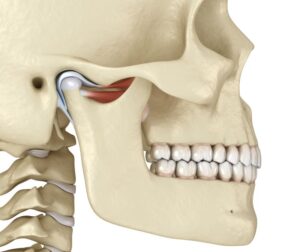
It might seem like bones are static structures that are simply there to support your body. However, the truth is that they are dynamic and are constantly changing. Over time, various factors can cause the bones to lose their strength and density. This is particularly common in the jawbone. What causes bone loss in the jaw, how might it affect you, and is there anything you can do to reverse it? This blog post shares some important information.
Cause of Bone Loss in the Jaw
Bone loss in the jaw can occur due to several factors, including the following:
- Tooth Loss: When you lose a tooth, the jawbone beneath it no longer receives the stimulation it needs, which leads to gradual bone resorption. (In other words, your body starts to recycle the bone.)
- Periodontal Disease: Gum disease can destroy the bone that supports your teeth, resulting in significant jawbone loss over time.
- Infection or Trauma: Injuries or infections in your mouth can damage the bone and cause it to recede.
- Osteoporosis: This systemic condition weakens bones throughout your body, including your jaw.
- Other Medical Conditions: Certain illnesses or medications can interfere with bone regeneration and health.
Consequences of Bone Loss in the Jaw
The effects of jawbone loss can be far-reaching and may impact your daily life in several ways. If this issue is left untreated, you might experience:
- Changes in Facial Appearance: Bone loss can cause your face to appear sunken or prematurely aged due to a lack of support for the cheeks and lips.
- Difficulty Eating and Speaking: You may find it harder to chew food or pronounce words clearly, especially if tooth loss accompanies bone loss.
- Loose or Shifting Teeth: Without sufficient bone, your remaining teeth can become unstable or move out of alignment.
- Complications with Dental Restorations: Bone loss can make it difficult to place dental implants or other restorative devices securely.
How Bone Grafting Can Help
If you are affected by jawbone loss, bone grafting may be able to help! This procedure involves adding new bone material to the affected area, either from your own body, a donor, or synthetic sources. It has the potential to:
- Rebuild your jawbone so it can support dental implants and other restorations.
- Improve your facial structure and appearance.
- Enhance the stability of your remaining teeth.
- Help prevent further bone deterioration.
Bone loss in the jaw is a very real problem, but fortunately, modern dentistry can minimize its impact.
Meet the Practice
At Northern Virginia Oral, Maxillofacial & Implant Surgery, our highly skilled team offers a range of advanced services, including multiple types of bone grafting. Whether you are interested in getting dental implants or want help to recover from the consequences of gum disease, we are ready to consult with you. Contact our Reston office at 703-736-1640.
